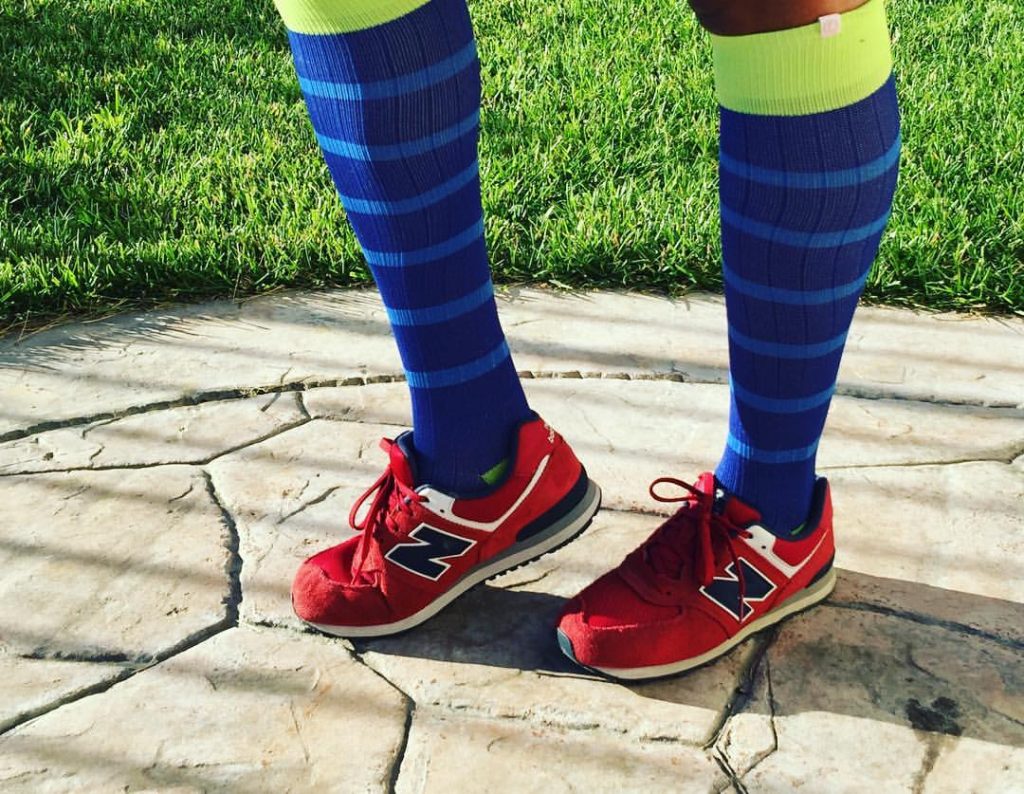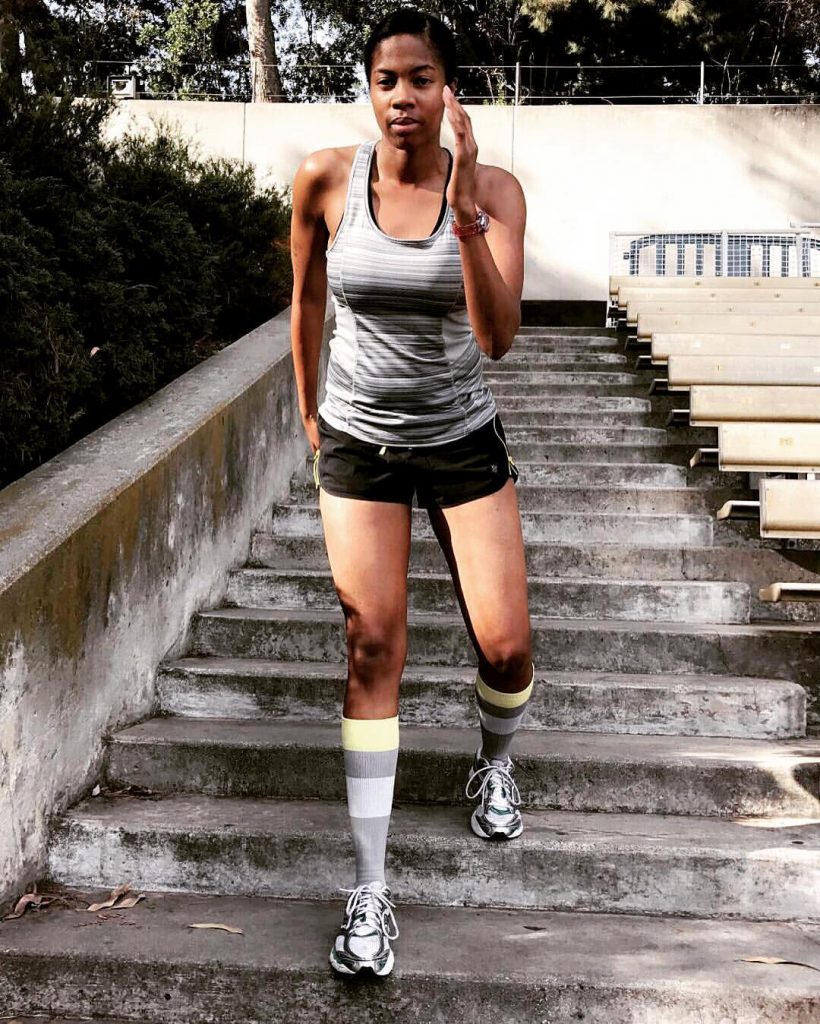Editor’s Note: Last week we shared some great products for a Runner’s Registry, and today we’re joined by Tootsies‘ founder, Jackie Edwards, whom happens to be a 5-Time Olympian and a Certified Personal Trainer! She’s here to give her top tips for running while pregnant! Tootsies is a new line of fun and fashionable compression socks specifically branded for the modern mom-to-be who still wants to maintain her sense of style while alleviating the discomfort of swollen ankles, feet and legs. Reduce swelling. Look good. Feel great!
Running has long been known to be a great way to add cardio to your workout program for many reasons, including increasing endorphins in your brain, which ultimately puts you in a better mood overall. Running can also help to reduce anxiety and improve sleep while providing you with an awesome total body exercise. Gestational diabetes and hypertension have also been known to be reduced in women who exercise regularly.
The decision to run or not during pregnancy depends on many different factors and you should always consult with your doctor to get the best advice. No two pregnancies are the same and you can never be too precautious. If a woman has had no prior history of running or jogging before pregnancy, it is generally advisable not to begin a running regimen while pregnant. If you were an avid runner before getting pregnant, then it is likely that you will be perfectly fine to continue with your routine however, you should still listen to your doctor’s input on the duration and frequency of your runs. There are certain medical conditions such as preterm labor, preeclampsia, placenta previa or short cervix, where running should be completely avoided.
Here are our Top 10 Tips to help you successfully navigate your way through pregnant running:
- Wear supportive running shoes that have high arches to ensure comfort and stability.
- Wear a proper running bra without wires to help support tender breasts. Some women will also benefit from wearing a belly band to support a large baby bump.
- Focus on really good running technique as opposed to increased pace and try to run on flat surfaces.
- Tune into your vitals. Know the signs to stop exercising. Contact your doctor if you experience an abnormal shortness of breath, chest pain, painful uterine contractions, vaginal bleeding, dizziness, or feeling faint.
- Be aware of your conditions. It is important to avoid running in the heat, especially in the first 12 weeks because overheating could potentially harm your baby.
- Nourish your body properly. Blood sugar swings are common during pregnancy. Have a small snack/meal about an hour before you exercise and carry an easily digestible snack or have juice on hand while you exercise in case you begin to feel lightheaded or dizzy. Be sure to hydrate, hydrate, hydrate! Drink plenty of water before, during and after exercise.
- Listen to your body. If you don’t do it already, pregnancy is a great time to start paying attention to the signs your body gives you. The signals your body puts out during pregnancy are clear and obvious. Heed them! If you’re feeling too tired to run one day, consider resting or walking instead. Trust your body and don’t overdo it.
- Measure your mileage and don’t run yourself to exhaustion. Record the number of minutes you run. If you are able to engage in a conversation while running, that is typically a good indicator that you’re exercising at a safe level.
- Pay attention to increased joint laxity. Be aware of increased joint range of movement caused by pregnancy hormones. This increased laxity is necessary because our pelvis must be flexible enough for a baby to pass through. However, an increase in flexibility can put you at risk for injury so be aware of this increased range of motion, don’t overstretch and protect your joints.
- Last but not least – PUT YOUR TOOTSIES ON!!…You didn’t think we’d forget this one did you??……Always wear your Tootsies Maternity Compression Socks when you go out for a run, particularly in the third trimester when your ankles, legs and feet are more likely to be swollen, achy and tired. Compression socks help to reduce and prevent swelling and inflammation, reduce and prevent spider and varicose veins, improve blood circulation and reduce fatigue and soreness. Your Tootsies will be your best running accessory! #treatyourfeet #rockoursocks
Once you have safely delivered your bouncing bundle of joy, be very careful about your return to exercise after giving birth. The months following childbirth and delivery is a time for your body to rest and repair because your pelvic floor muscles and abdominals have been stretched and pushed to their maximum limits. During this time, it is important to retrain your breath, and rehabilitate and strengthen your core and pelvic floor before you return to running.
Most women who return to running and vigorous exercise too soon after giving birth won’t actually experience any issues. However, the number of surgeries for pelvic floor disorders is on the rise, so it’s better to err on the side of caution.
Good luck with your pregnancies and have fun running!!


Leave a Reply